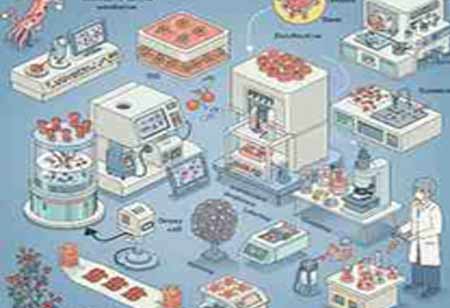Revolutionizing Eye Care with AI: A New Era of Vision Technology
AI is speeding up the discovery of new treatments for eye conditions.

By
Medical Care Review | Monday, April 21, 2025
Stay on top of your health and well-being with exclusive feature stories on the top medical clinics and treatment centers, expert insights and the latest news delivered straight to your inbox. Subscribe today.
Fremont, CA: Artificial Intelligence (AI) is swiftly revolutionizing numerous sectors within healthcare, with ophthalmology emerging as a particularly promising domain for advancements. The eye care sector is experiencing a transformation with the potential for earlier diagnoses, tailored treatments, and enhanced patient outcomes globally. A key benefit of AI in this field is its capacity to improve diagnostic precision. Conventional eye examinations often depend on subjective evaluations and the clinician's skill. In contrast, AI-powered tools and deep learning algorithms can analyze medical images with accuracy that surpasses human ability.
The algorithms can identify minute changes in blood vessels or retinal tissue, enabling early diagnosis and intervention. Clinicians can catch these diseases at their earliest stages, often before symptoms manifest, drastically improving treatment outcomes. AI can increase access to eye care services, especially in under-resourced areas. Millions globally have preventable blindness due to poor access to ophthalmic care. AI-powered telemedicine platforms and portable diagnostic devices can bridge this gap. By leveraging AI, these systems can screen large populations quickly and effectively, identifying those at risk for severe eye conditions.
The technology enables non-specialists, such as primary care physicians or community health workers, to conduct initial screenings, saving specialist consultations for more complex cases. It reduces the burden on overstrained healthcare systems and brings essential eye care services to underserved populations. AI offers the potential for personalized treatment plans based on an individual's unique condition. AI can analyze patient data points, such as intraocular pressure, corneal thickness, and optic nerve images. The insights allow clinicians to tailor treatment regimens best suited to each patient, ensuring a more targeted and practical approach to care.
Personalized medicine, driven by AI, can lead to better patient adherence, fewer side effects, and improved chronic eye disease management. AI is poised to revolutionize surgical procedures in ophthalmology. Robotic-assisted AI-powered surgeries offer unparalleled precision and control, minimizing human error during delicate operations like cataracts or retinal surgery. AI-guided systems can also analyze pre-operative data to assist surgeons in making critical decisions, leading to better surgical outcomes. The advancements improve the success rate of surgeries and reduce recovery times and post-operative complications, benefiting patients immensely.
Traditional clinical trials can take years, but AI algorithms can analyze vast datasets from previous trials and patient records to identify potential therapeutic candidates faster. The targeted approach accelerates the development of therapies and enhances the likelihood of success. Despite AI's immense promise in revolutionizing eye care, challenges remain. Ethical considerations, such as data privacy and the need for rigorous validation of AI algorithms, are critical. There is a need to ensure that AI does not replace the human touch in healthcare but rather augments it, enabling clinicians to focus on higher-level decision-making and patient care.







